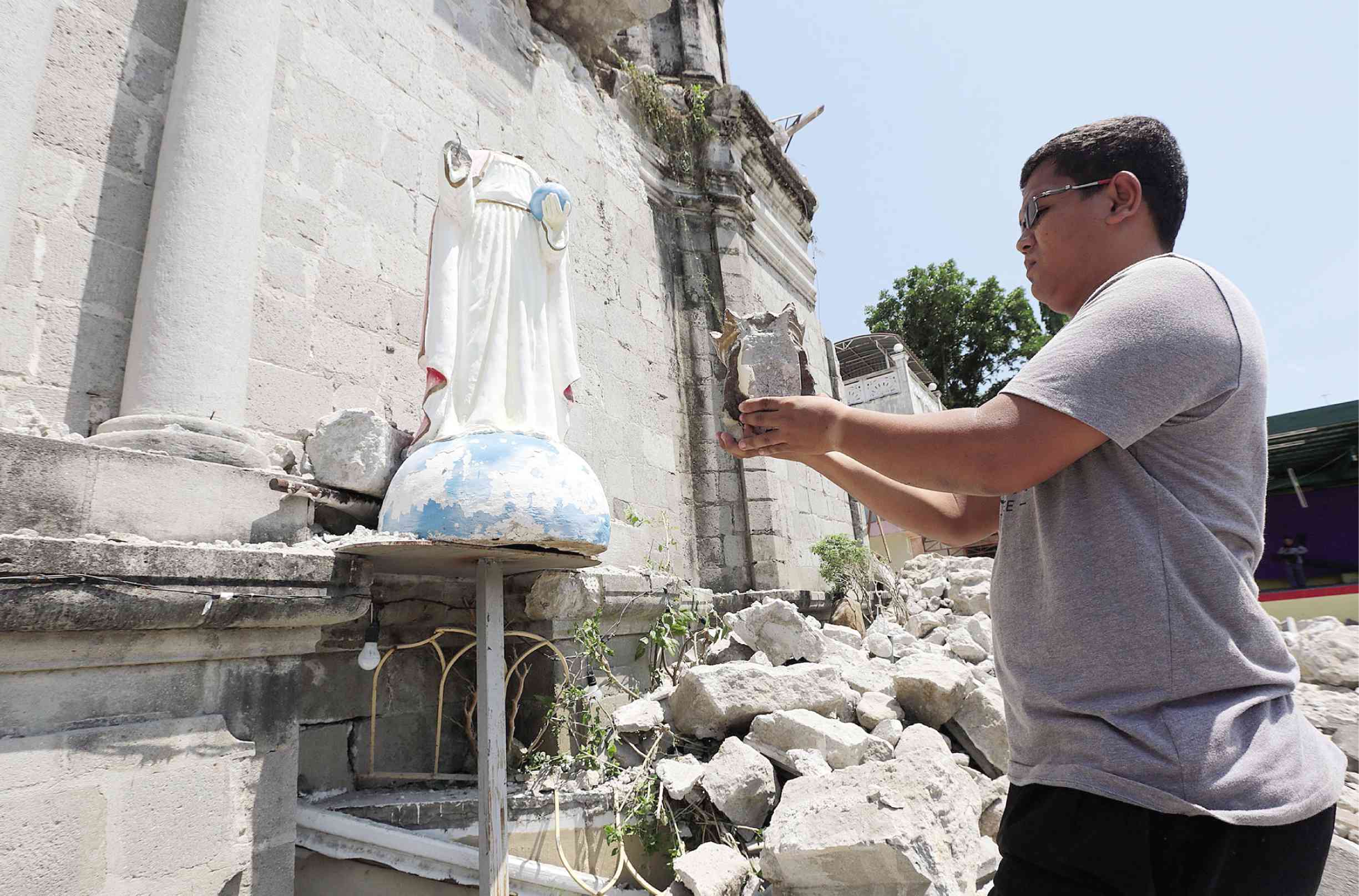MANILA, Philippines — Before the April 22 earthquake, the eruption of Mt. Pinatubo on June 15, 1991, and the subsequent lahar flows until 1995 were the most recent disasters that the Archdiocese of San Fernando (ASF) had to deal with.
The ASF tried to save both tangible and intangible forms of cultural heritage in Pampanga and its extended dioceses in Tarlac, Balanga in Bataan and Iba in Zambales.
Heritage conservation in the ASF was only budding then, but it prepared the Church for disaster response.
A museum was established in 1979 and the archives in 1983 during the term of Archbishop Oscar Cruz.
Between 1979 and 1990, Cruz issued circulars involving the formation of the church-convent construction and renovation committee; exercise of vigilance and care on movable church, school and house properties to prevent their loss to theft; stopping treasure hunts in archdiocesan or parochial grounds; and proper preservation of parish canonical books.
Two of 17 Pinatubo-related circulars issued from 1991 to 2006, during the administration of Archbishop Paciano Aniceto, referred to the need to protect Church possessions through, for example, assessment of damage to church edifices and preservation of parish canonical books. Three of the circulars covered protecting the religious and cultural legacy.
“The protection of built heritage was part of the agenda as the archdiocese decreed that church construction and repair be undertaken in accordance with … the principles and practice of sound liturgical architecture,” said writer Nina Tomen.
The late Fr. Nestor Tayag saved the “retablo” (devotional painting) and baptismal books of the San Guillermo Church in Bacolor from the lahar flows by requesting drivers of off-road vehicles to transfer these to safe grounds.
Some wealthy families of Bacolor donated their “carrozas” (carriages) and religious images to private museums like the De La Salle Museum in Cavite province.
That period was about saving the body and soul — and so it is after the earthquake on April 22.
